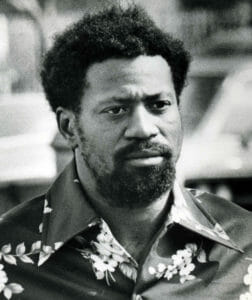Man Sent Back to Prison After Receiving Commutation
Matthew Charles, although he committed no new crime, is back behind bars, and his case is generating a widespread demand for his release. Wikimedia Commons
Wikimedia Commons
Such celebrities and influencers as Kim Kardashian West and Chelsea Clinton are tweeting about the strange case of a Nashville man who, although he committed no new crime, has been returned to prison after being freed under an Obama administration reform.
Matthew Charles served more than 20 years before being released early because of a commutation for drug offenders. Now, after Donald Cochran, a U.S. attorney for Tennessee, successfully sought a reversal of his release, Charles is back behind bars to complete his original sentence.
According to the website Heavy, Charles, 51, served 21 years of his original 35-year sentence, for dealing crack cocaine, before being let out of prison in 2016. His early release was because of a change in the penalties for dealing the drug. Before this change, convictions related to the possession of one gram of cocaine were the same as those related to the possession of 100 grams. After the change, a federal judge opted to apply the changes to Charles’ sentence, thereby shortening it.
However, Cochran’s office decided to appeal Charles’ release on the grounds that he was a “career offender” who had served a prior stint in state prison. Cochran claimed that this meant the retroactive change in law could not apply to Charles. A court of appeals agreed with Cochran and accepted the argument that Charles did not qualify for the commutation.
President Trump could overturn the sentence, but that’s doubtful, given that Cochran was appointed by Trump.
“He’s rebuilt his life and now they’re coming to snatch it,” says a man known as Wolfe who met Charles at a halfway house in 2016 and has volunteered with him for community service.
Another friend of Charles, John Hairston, said that the ordeal “underscores how big a need there is for some reform in the justice system. I don’t care what they say.”
Nashville Public Radio continues:
Since his release in 2016, Charles has held a steady job. He volunteers every Saturday, has reconnected with his family, and started a serious relationship. But really, his rehabilitation started years prior. In prison, he took college classes and correspondence courses, he taught a GED program and became a law clerk. With his training, he helped other incarcerated men understand the judicial system long after their public defenders moved on to the next case.
Charles kept the secrets of those who were illiterate so they wouldn’t face ridicule or harassment—he read them letters from the court and drafted filings for them in the library. He organized Bible studies and counseled newcomers. Two decades in federal institutions–from maximum to low security—without a single disciplinary infraction.
Those that know Charles say they can’t understand why the justice system won’t recognize his rehabilitation. But the federal Bureau of Prisons did away with parole and most “good behavior” incentives years ago—even the best behaved must serve out the majority of their term.
Returning Charles to prison has stirred up anger and frustration among supporters who point to his exemplary citizenship.
West tweeted, “[Charles] serves over 21 yrs, is released, finds a job, new relationship, starts a new life, & now is being sent back for another 10 yrs because the original release was an error. This man has completely rehabilitated himself.”
This man is sentenced to 35 yrs for selling drugs. He serves over 21 yrs, is released, finds a job, new relationship, starts a new life, & now is being sent back for another 10 yrs because the original release was an error. This man has completely rehabilitated himself. So sad https://t.co/msLsMSHGxh
— Kim Kardashian West (@KimKardashian) May 28, 2018
Charles’ resentencing has even become a bipartisan issue: The Federalist, a conservative news publication, published a piece arguing why Trump should reduce Charles’ sentence:
Since his release Charles has been a fully employed, church-going member of his community who volunteers and is in a serious romantic relationship. Now he’s losing not only his reprieve, but also the new life he has built. Legally, it may very well be that the courts made the right decision in revoking his freedom, but might this be a case where the law is not producing the just goals it was intended to, and might president Trump’s unique power be appropriate in making this situation right?
According to a Facebook post by Charles, he returned to prison May 14. Trump has yet to express an opinion on the case, but he did meet with West to discuss prison reform and a potential pardon in another case, involving the life sentence of Alice Marie Johnson, who was convicted for a first-time drug offense in 1996.
Your support matters…Independent journalism is under threat and overshadowed by heavily funded mainstream media.
You can help level the playing field. Become a member.
Your tax-deductible contribution keeps us digging beneath the headlines to give you thought-provoking, investigative reporting and analysis that unearths what's really happening- without compromise.
Give today to support our courageous, independent journalists.






You need to be a supporter to comment.
There are currently no responses to this article.
Be the first to respond.